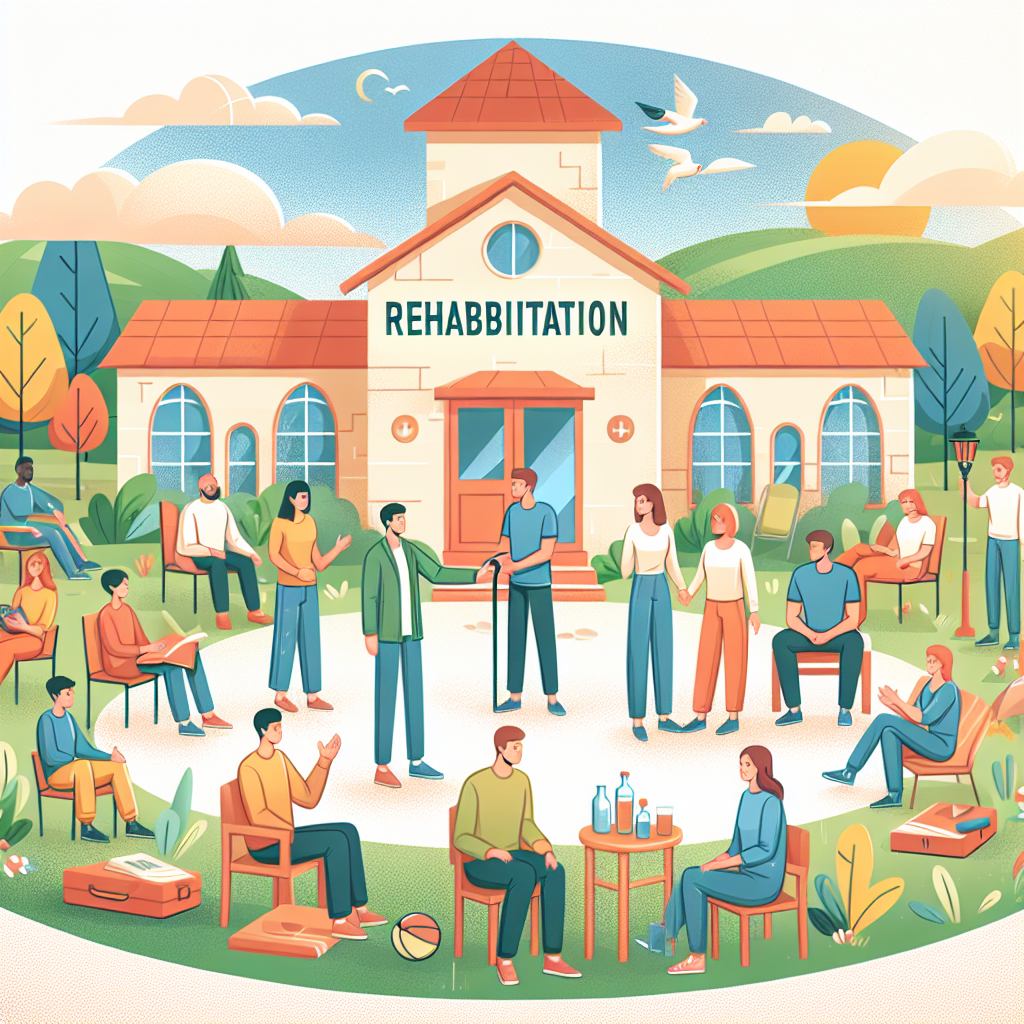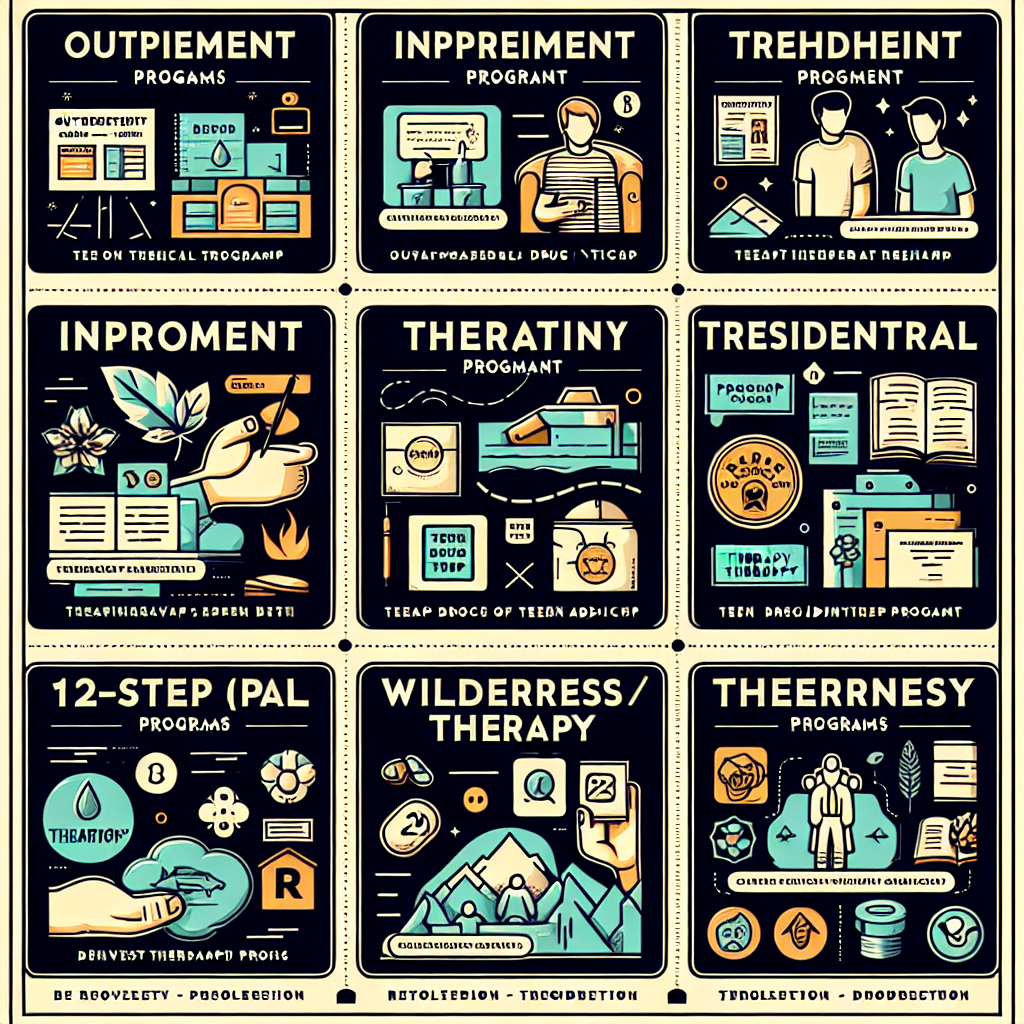-
Table of Contents

“Empowering Young Adults to Embrace Sobriety and Thrive”
Introduction
Rehabilitation programs play a crucial role in helping young adults overcome substance abuse and build a sober lifestyle. These programs provide a structured environment where individuals can receive medical, psychological, and emotional support tailored to their specific needs. Through a combination of detoxification, therapy, education, and skill-building activities, rehab helps young adults understand the root causes of their addiction, develop coping mechanisms, and learn how to navigate life without relying on substances. By fostering a sense of community and offering continuous support, rehab empowers young adults to make lasting changes, rebuild their lives, and achieve long-term sobriety.
The Role of Rehab in Establishing a Sober Foundation for Young Adults
Rehabilitation plays a crucial role in helping young adults build a sober lifestyle, offering a structured environment where they can begin to heal and develop the skills necessary for long-term recovery. The journey to sobriety is often fraught with challenges, but rehab provides a supportive framework that can make all the difference. By addressing the root causes of addiction and offering comprehensive treatment plans, rehab centers empower young adults to reclaim their lives and establish a solid foundation for a sober future.
One of the primary ways rehab helps young adults is by providing a safe and controlled environment where they can detoxify their bodies from substances. This initial phase is critical, as it allows individuals to break free from the physical dependence on drugs or alcohol. Under the supervision of medical professionals, young adults can navigate the often difficult withdrawal process with the support and care they need. This medical oversight not only ensures their safety but also helps to alleviate some of the discomfort associated with detoxification.
Following detox, rehab centers offer a variety of therapeutic interventions designed to address the psychological aspects of addiction. Individual therapy sessions allow young adults to explore the underlying issues that may have contributed to their substance use, such as trauma, mental health disorders, or family dynamics. Through these sessions, they can develop healthier coping mechanisms and gain a deeper understanding of themselves. Group therapy, on the other hand, provides a sense of community and shared experience. By connecting with peers who are facing similar struggles, young adults can find solace in knowing they are not alone in their journey.
In addition to therapy, rehab programs often incorporate educational components that teach young adults about the nature of addiction and the importance of maintaining a sober lifestyle. These educational sessions can cover a wide range of topics, from the science of addiction to practical strategies for avoiding relapse. By equipping young adults with this knowledge, rehab centers empower them to make informed decisions about their recovery and future.
Moreover, rehab centers emphasize the development of life skills that are essential for maintaining sobriety. Young adults learn how to manage stress, build healthy relationships, and set achievable goals. These skills are crucial for navigating the complexities of life without resorting to substance use. By fostering personal growth and resilience, rehab helps young adults build a strong foundation for a sober lifestyle.
Another significant aspect of rehab is the aftercare planning that takes place as individuals prepare to transition back into their everyday lives. Rehab centers work with young adults to create personalized aftercare plans that may include ongoing therapy, support group meetings, and other resources to help them stay on track. This continued support is vital for preventing relapse and ensuring long-term success.
Ultimately, the role of rehab in establishing a sober foundation for young adults cannot be overstated. By providing a comprehensive and supportive environment, rehab centers help young adults break free from the cycle of addiction and build a future filled with hope and possibility. The journey to sobriety is undoubtedly challenging, but with the right support and resources, young adults can overcome their struggles and lead fulfilling, sober lives.
Key Strategies Used in Rehab to Support Young Adults in Achieving Long-Term Sobriety
Rehabilitation programs play a crucial role in helping young adults build a sober lifestyle, offering a structured environment where they can learn and practice key strategies for achieving long-term sobriety. One of the primary strategies employed in rehab is the development of a personalized treatment plan. This plan is tailored to meet the unique needs of each individual, taking into account their specific substance use history, mental health conditions, and personal goals. By focusing on the individual, rehab centers can provide targeted interventions that address the root causes of addiction, thereby increasing the likelihood of sustained recovery.
Another essential strategy is the incorporation of evidence-based therapies. Cognitive-behavioral therapy (CBT) and dialectical behavior therapy (DBT) are commonly used to help young adults understand the thought patterns and emotional triggers that contribute to their substance use. These therapies equip individuals with practical skills to manage stress, cope with negative emotions, and make healthier choices. Additionally, motivational interviewing is often employed to enhance an individual’s intrinsic motivation to change, fostering a sense of empowerment and self-efficacy.
Group therapy sessions also play a significant role in the rehab process. These sessions provide a supportive community where young adults can share their experiences, challenges, and successes with peers who are facing similar struggles. This sense of camaraderie and mutual support can be incredibly powerful, helping individuals feel less isolated and more understood. Moreover, group therapy can offer valuable insights and coping strategies from others who have navigated similar paths, further reinforcing the tools learned in individual therapy.
Family involvement is another critical component of successful rehab programs. Addiction often affects not just the individual but also their loved ones. By involving family members in the treatment process, rehab centers can help repair strained relationships and build a supportive home environment that is conducive to recovery. Family therapy sessions can address communication issues, set healthy boundaries, and educate family members about addiction and recovery, thereby creating a more cohesive support system.
In addition to therapeutic interventions, rehab programs often emphasize the importance of developing healthy routines and habits. Structured daily schedules that include time for therapy, physical activity, nutritious meals, and recreational activities can help young adults establish a balanced lifestyle. These routines can provide a sense of stability and predictability, which is particularly beneficial for individuals who may have experienced chaos and unpredictability due to their substance use.
Furthermore, life skills training is an integral part of the rehab process. Young adults are taught essential skills such as time management, financial planning, and effective communication. These skills are crucial for navigating the challenges of daily life without resorting to substance use. By building competence in these areas, individuals can increase their confidence and independence, making it easier to maintain sobriety in the long term.
Finally, aftercare planning is a vital strategy for ensuring continued success after leaving rehab. This involves creating a comprehensive plan that includes ongoing therapy, support group meetings, and other resources to help individuals stay connected to their recovery community. Aftercare plans are designed to provide a safety net, offering support and guidance as young adults transition back into their everyday lives.
In conclusion, rehab programs employ a multifaceted approach to support young adults in achieving long-term sobriety. Through personalized treatment plans, evidence-based therapies, group and family involvement, the development of healthy routines, life skills training, and aftercare planning, these programs provide the tools and support necessary for building a sober and fulfilling lifestyle. The journey to sobriety is undoubtedly challenging, but with the right strategies and support, young adults can overcome addiction and embrace a brighter future.
Q&A
1. **Question:** How does rehab provide structure for young adults seeking sobriety?
**Answer:** Rehab provides a structured environment with scheduled activities, therapy sessions, and support groups, which helps young adults establish routines and develop healthy habits essential for maintaining sobriety.
2. **Question:** What role does therapy play in helping young adults build a sober lifestyle in rehab?
**Answer:** Therapy in rehab helps young adults address underlying psychological issues, develop coping strategies, and gain insights into their addiction, which are crucial for sustaining long-term sobriety.
Conclusion
Rehab helps young adults build a sober lifestyle by providing structured environments, professional support, and therapeutic interventions that address the root causes of addiction. It equips them with coping strategies, life skills, and a supportive community, fostering long-term recovery and personal growth.



